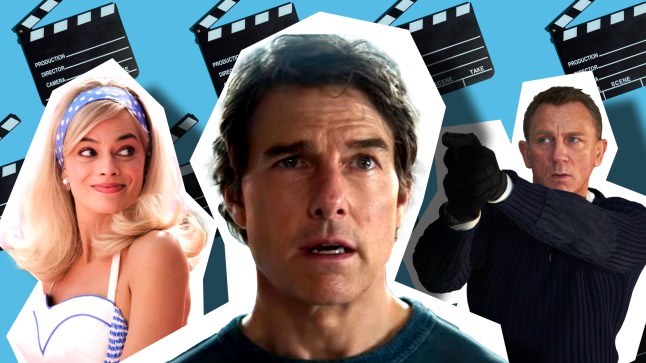
President Donald Trump has been branded ‘delusional’ by leading film professionals in the UK following his proposal of a ‘100% tariff’ on non-US movies, in a bid to ‘make Hollywood great again’.
Meanwhile, film fans have been left to fret over what it could mean for the future of anticipated releases like the next James Bond film, with the franchise now fully in the hands of American owners Amazon, who could shift production away from the UK to avoid a potential ruinous additional bill of hundreds of millions of dollars.
The US leader, 78, boldly announced on Truth Social on Sunday night that he had authorised government departments to impose tariffs ‘on any and all movies coming into our country that are produced in foreign lands’.
‘The movie industry in America is DYING a very fast death,’ he claimed, saying Hollywood was being ‘devastated’ by incentives offered by other countries to produce films there – something he classified as a ‘national security threat’.
Details have remained scarce over what this actually means and how any potential tariffs would even be implemented, although Trump has already appeared to walk back his approach by insisting he’s ‘not looking to hurt the industry’ and will meet with Hollywood leaders to ensure ‘they’re happy’ with his plans.
The UK film sector is potentially a major victim of these – likely catastrophic – proposed tariffs.
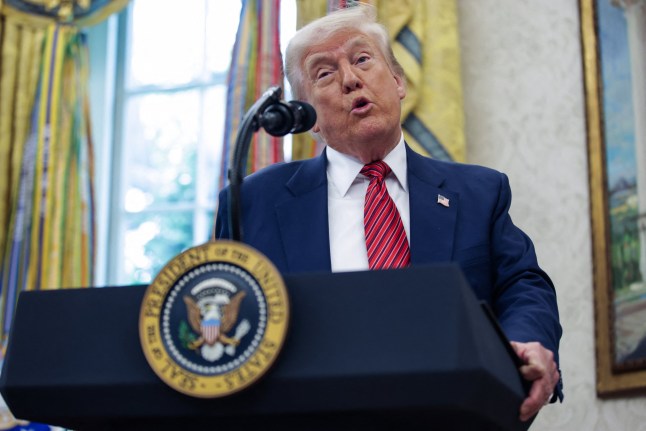
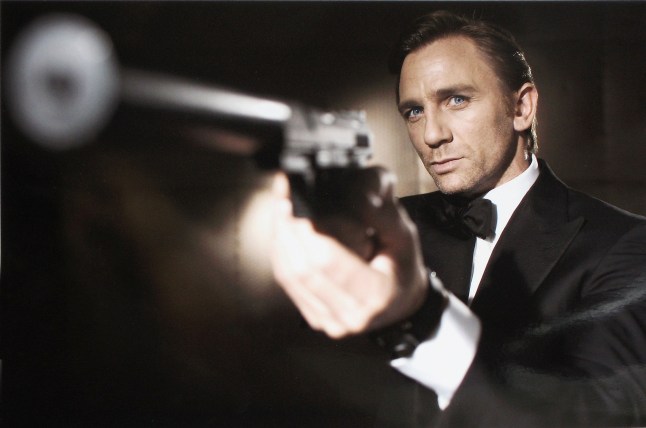
It’s worth £1.36billion and employs more than 195,000 people, according to the government in 2024 – many of these workers will have contributed to massive Hollywood films recently made here, like blockbuster Barbie, musical Wicked and the upcoming Mission: Impossible – The Final Reckoning.
While it’s unlikely any tariffs could be imposed in time to affect Mission: Impossible’s release later this month, they could certainly put a considerable dent in franchise producer and star Tom Cruise’s long-standing working relationship with the UK if the cost suddenly doubles.
And Wicked: For Good – which shot exclusively in the UK – is not out until November, so will it and Universal Pictures retroactively be punished for that decision to the tune of 100% added on in astronomical new charges? (And would they classify the back-to-back shoot of both parts as one production/movie, so the full budget was tariff-able?)
It’s hard to predict the full impact yet without any specifics, which has industry experts exasperated.
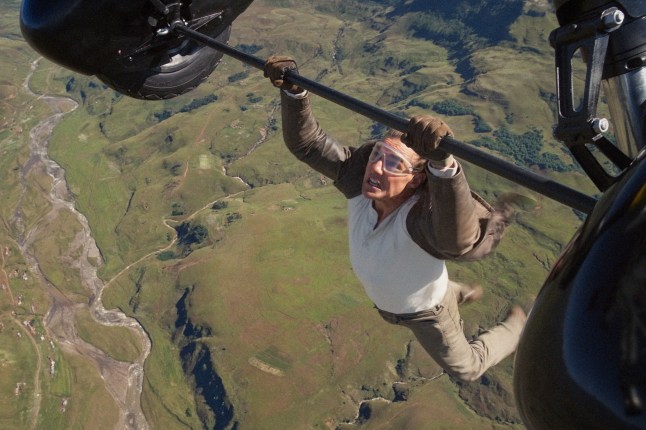
For starters, how could the tariffs even be levied given ‘films are a service industry that result in intellectual property, not a physical good’, pointed out Eugenio Triana, course director for Birmingham City University’s MA Film Distribution and Marketing.
Speculating on how they could impact film fans in US cinemas, he added to Metro: ‘Would they make ticket prices be more expensive, since almost all Hollywood films have some portion shot outside the US? I don’t see how this would be beneficial to the US consumer, but my understanding of how the tariffs would work is unclear.’
As Emmanuel Anyiam-Osigwe, founder of the British Urban Film Festival suggested, Trump is treating films just like he has trading physical products in ‘trying to boost American-made movies by making imported ones way more expensive’.
‘It might mean more money goes into Hollywood, but it could also mean fewer international films showing up in US cinemas. That’s a shame, because some of the best stories and talent come from all over the world,’ he observed.
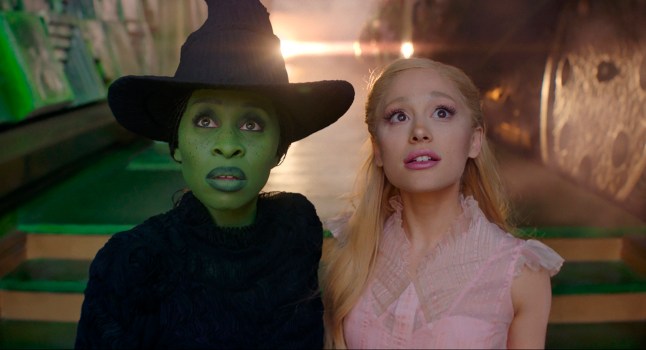
The fact that filmmaking is such a global, collaborative business now is also a major stumbling block for Trump’s tariffs – implemented in an attempt to return movies to being a ‘largely national US-based industry’ like Hollywood’s heyday a century ago – several experts argued.
‘The film industry just doesn’t work like that anymore, and with funding, resources and crew so internationally spread out I don’t even see how you would begin to apply a tariff system,’ Peter Spence, Sheffield Hallam University’s senior lecturer in Film, told Metro.
Spence dismissed tariffs as ‘a very blunt instrument’ in achieving any kind of successful outcome for Hollywood, while also raising a key issue baffling many: how do you even define if (and to what degree) a film was ‘made in a foreign land’ anyway?
‘The British Film Institute operate a points-based system to determine if a film is British based not only on tangibles like nationality of director, cast, crew and filming locations, but also how British culture, heritage and identity is portrayed in the film’s narrative through its characters, storylines and dialogue,’ Spence explained.
Films which could be impacted by Trump's '100% tariff' on foreign movies
- Mission: Impossible – The Final Reckoning (May 21) – while unlikely Trump can move swiftly enough with any tariffs to impact this release, Tom Cruise has a long and successful partnership with the UK film industry the president might be looking to disrupt
- F1 (June 25) – the upcoming driving drama, starring Brad Pitt and Damson Idris, filmed a chunk of its scenes at Silverstone and other UK spots, among other countries including Italy, the Netherlands, Abu Dhabi, and Belgium
- Jurassic World Rebirth (July 2) – the Jurassic Park/World franchise has made its main filming home the UK since Jurassic World: Fallen Kingdom (2018) and its 2022 follow-up Jurassic World Dominion. The same applies for its next sequel, stomping into cinemas this summer
- Wicked: For Good (November 21) – both parts of the Wicked movie adaptation filmed exclusively in the UK, so if there’s any kind of retroactive/pre-release implementation of tariffs then Universal Pictures could be in for a 100% cost increase
- Avengers: Doomsday (May 2026) – currently filming at Pinewood Studios, where Disney has multiple lots on permanent loan, could the film anticipated to ‘save’ Marvel with the Russo Brothers return and a star-studded cast in fact lead to its financial ruin? Its budget (without tariffs) is projected to be in the region of $450m
- The Beatles – A Four-Film Cinematic Event (April 2028) – we’ve got a British and Irish cast and team telling a distinctly British story with this four-part biopic, each told from a different Beatle’s perspective. But will they make it over to the US ever with four possible lots of tariffs to pay in one go?
- New James Bond (TBC) – there are very few confirmed details yet, but US entity Amazon MGM Studios now has creative control with producing duties split between Amy Pascal (American, Spider-Man) and David Heyman (British, Harry Potter). Could possible spiraling costs impact on 007’s distinct – and authentic – Britishness?
‘For instance, Saltburn couldn’t be more British in terms of content – but the financing was all American so can we really call it a ‘British film’?’
Andrew Hill, director of branded content at Apostle Studios – who worked alongside Trump as a producer on the US version of The Apprentice – also raised this point as he blasted his former colleague’s approach as ‘delusional’ and observed that ‘Donald Trump must really hate Hollywood’.
‘What makes a movie ‘foreign’? Where it’s shot? Who funds it? The director’s passport? Take an American script, shoot it at Pinewood with a German crew and French money… is that ‘foreign’?’ he asked Metro.
Acknowledging that Hollywood films ‘are global by default’ he said Trump’s plan to slap tariffs on non-US films ‘isn’t protectionist, it’s delusional’ because it wouldn’t fix the real problem.

‘Hollywood is just too expensive. High union costs, pricey real estate, rigid hierarchies – none of that changes with tariffs. If Trump wants more movies made in LA, he’d be better off copying the UK, Hungary or Australia and offering tax incentives,’ he suggested.
Film and TV lawyer Juliane Althoff, partner at Simkins LLP, also warned that the proposed US tariffs could ‘provoke retaliation from other countries’, leading to ‘higher barriers for American films’ in Europe and China which would then ‘threaten Hollywood’s dominance at the global box office’.
So, a major potential backfire then for the American film industry – something echoed by Sarah Purser, founder of Little White Rose Films, who sees the tariffs ‘hurting both sides’.
‘If President Trump were to make it more expensive for Hollywood to shoot abroad, it could disrupt the UK’s thriving film economy – but it wouldn’t magically bring jobs back to LA. Tariffs wouldn’t change the fact that the UK offers top tier talent and facilities at lower cost,’ she argued to Metro.
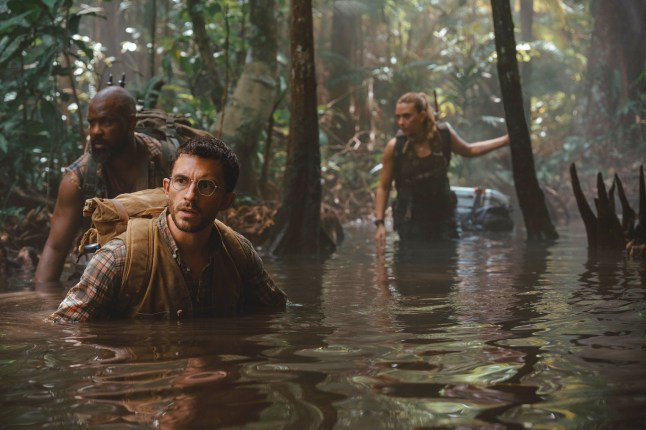
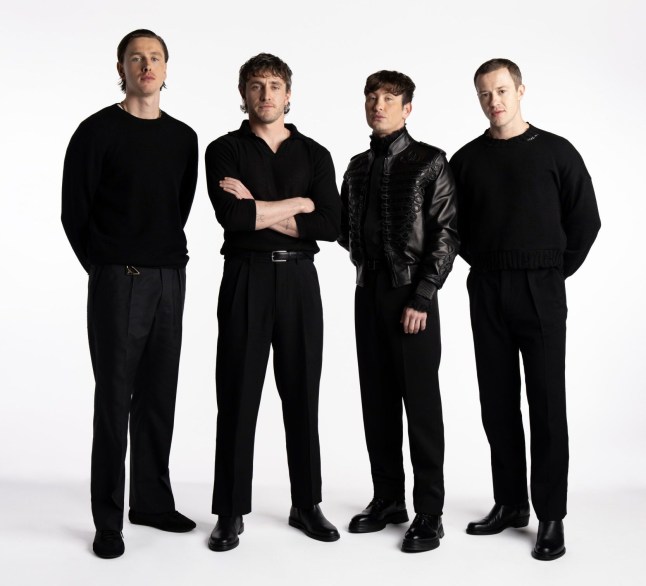
(Picture: Sony UK)
Instead, Purser sees tariffs forcing studios to ‘cut back or get more selective’, with mid-budget films (already a rarity nowadays) and experimental work ‘squeezed hardest’.
The producer has an office at Pinewood Studios, where she said of the current mood: ‘There’s definitely concern, but also quiet confidence – the quality of work here speaks for itself and President Trump has been known to backpedal.’
‘Big-budget films today rely on international collaboration. You need the best talent, wherever they are, to deliver world-class results,’ agreed Joseph Steel. ‘The UK has been at the heart of that with films like Barbie, Mission: Impossible, Venom: Let There Be Carnage, Napoleon and Paddington in Peru all either shot or heavily produced and post-produced here.’
His VFX company Visualskies worked on the latter three films, and he praised the UK film industry – despite the pressure it’s still under as it continues to recover from the 2023 actors’ strike – for offering a unique mix of ‘cutting-edge studios, highly skilled crews, competitive costs and strong tax incentives’.

But if the US ‘shuts that out’, he sees production costs soaring and profits being reduced with ‘fewer tentpole blockbusters’ as a result – although he actually predicts the unexpected bonus of ‘more high-quality indie films stepping into the spotlight’.
An executive producer on Michael Mann’s film Ferrari was, in contrast, happy to provide a more ‘contrarian’ view as he slammed California’s leadership for ‘lacking common sense’ and agreed with Trump’s motives.
‘This is stunningly and painfully obviously to anyone who lives in Los Angeles,’ DC Cassidy, managing partner at Interstellar Entertainment, added to Metro, observing that the UK in contrast ‘has built one of the smartest creative economies in the world’ thanks to its tax incentives.
Cassidy defended Trump’s position as ‘not anti-global’ while sharing sympathy with the President’s view – if not the way he’s choosing to potentially impose it.
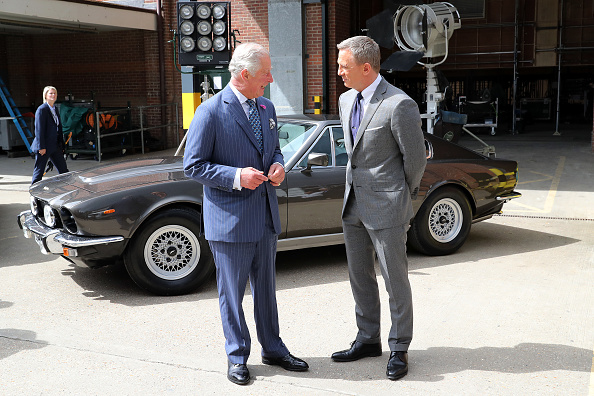
‘Trump’s message is simple: “We don’t need fancy degrees. We need leaders with common sense.” And in this case – he’s right. The UK applies common sense to film, California does not. One is gaining ground, the other is losing it. This isn’t about tariffs. It’s about accountability.’
There’s been fighting talk too from politicians, with Liberal Democrat leader Sir Ed Davey vowing at Prime Minister’s Questions on Wednesday that if Trump ‘picks a fight with James Bond, Bridget Jones and Paddington Bear he will lose’.
The UK film industry and Hollywood both wait on high alert to see if they’ll be any fight at all.
Got a story?
If you’ve got a celebrity story, video or pictures get in touch with the Metro.co.uk entertainment team by emailing us celebtips@metro.co.uk, calling 020 3615 2145 or by visiting our Submit Stuff page – we’d love to hear from you.